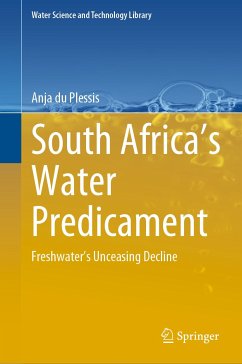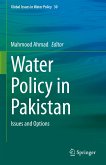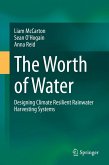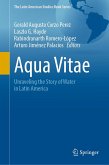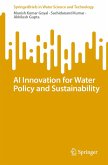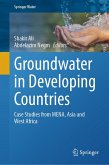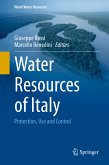The main argument of the book is that South Africa's freshwater resources have declined to such an extent that it can be described as a predicament. Questionable water governance decisions and reactive water management practices have led to no improvement and/or increased degradation of freshwater resources. An overall lack of service delivery exists across the country, in various contexts, leading to further water and social decline.
An inter-disciplinary evaluation of South Africa's current water predicament is provided, major water crises are prioritized, and suitable recommendations are given to transform its predicament into problems which can be addressed. Suitable background information is given to emphasize the necessity of good water governance, management, and service delivery. South Africa's freshwater resources are evaluated with specific focus on the decline of informed water governance, management, service delivery and water quality. Factors requiring urgent attention are determined and suitable recommendations and/or actions are provided.
An evaluation and overall synthesis focused on the transformation of the predicament into problems is provided. Primary water problems are prioritized according to urgency and suitable recommendations are given to assist in transforming the country's current complex water predicament into "simpler" water problems. Political will, collaboration with researchers, stakeholders, non-governmental organizations, and cooperation of civil society is required.
South Africa's already scarce freshwater resources and decaying infrastructure will persist and possibly collapse if no major actions or interventions are implemented.
Dieser Download kann aus rechtlichen Gründen nur mit Rechnungsadresse in A, B, BG, CY, CZ, D, DK, EW, E, FIN, F, GR, HR, H, IRL, I, LT, L, LR, M, NL, PL, P, R, S, SLO, SK ausgeliefert werden.
Hinweis: Dieser Artikel kann nur an eine deutsche Lieferadresse ausgeliefert werden.

